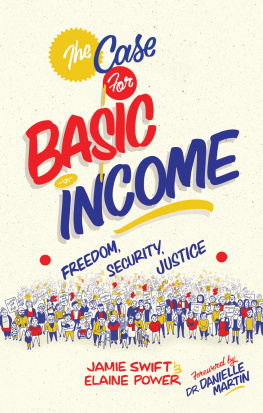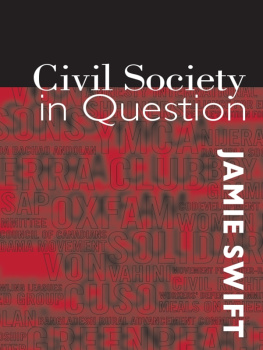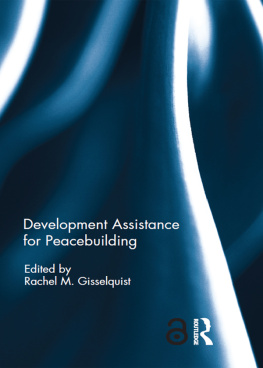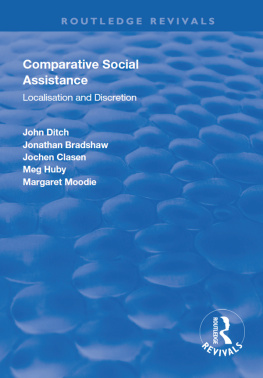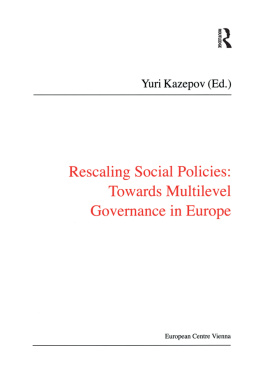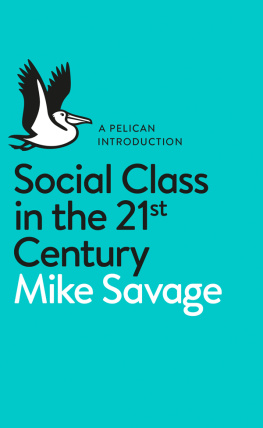Persistent Poverty: Voices from the Margins
2010 by Jamie Swift, Brice Balmer, and Mira Dineen
First published in Canada in 2010 by
Between the Lines
401 Richmond Street West, Studio 277
Toronto, Ontario
M5V 3A8
1-800-718-7201
www.btlbooks.com
All rights reserved. No part of this publication may be photocopied, reproduced, stored in a retrieval system, or transmitted in any form or by any means, electronic, mechanical, recording, or otherwise, without the written permission of Between the Lines, or (for photocopying in Canada only) Access Copyright, 1 Yonge Street, Suite 1900, Toronto, Ontario, M5E 1E5.
Every reasonable effort has been made to identify copyright holders. Between the Lines would be pleased to have any errors or omissions brought to its attention.
Cataloguing data available from Library and Archives Canada
ISBN 978-1-926662-27-5 (epub)
ISBN 978-1-926662-28-2 (PDF)
ISBN 978-1-897071-73-1 (print)
Cover design and front cover photo by Jennifer Tiberio
Text design and page preparation by Steve Izma
Between the Lines gratefully acknowledges assistance for its publishing activities from the Canada Council for the Arts, the Ontario Arts Council, the Government of Ontario through the Ontario Book Publishers Tax Credit program and through the Ontario Book Initiative, and the Government of Canada through the Canada Book Fund.
Introduction:
The Work of Hundreds of People
P ERSISTENT POVERTY. Our books title points to the enduring plight of our most vulnerable neighbours. Its subtitle, Voices from the Margins, describes what the book offers: an opportunity for people whose voices are too rarely heard to describe life on the precarious edge of a culture that tends to place more value on celebrity than on human dignity.
This kind of survey is becoming more urgent. In 2010 the federal Conservative government decided to abandon the census techniques that had long provided detailed and reliable data about poverty in our rich country. From the ruling governments point of view, the less we know about the poor, the easier it is to overlook them. A recent headline says it all: Poverty Increases Chances of Dying of Cancer, Study Says. The study in question was based on the long-form census data that Ottawa would eliminate. Political moves like this make the need for this book all the more pressing.
The book has three authors, but the organizing, writing, consulting, testifying, and facilitating that stand behind it involved a great many more people scattered across Ontario. The Interfaith Social Assistance Reform Coalition (ISARC) 2010 social audit process engaged several hundred volunteers who organized hearings across the province. These volunteers, working as convenors, facilitators, recorders, and rapporteurs, heard from several thousand people who described the effects of poverty in their lives and communities. We hope that these voices, which animate the following pages, will be heard not just by the political class but also, indeed, by all Ontario residents.
ISARCs roots go back to the Ontario Social Assistance Review Committee, established in 1986. This official government inquiry held hearings in thirteen communities and produced Transitions (1988), a report that captured the voices of low-income Ontarians. That document was, unfortunately, shelved. ISARC later held thirteen community hearings of its own in the course of audits done in 1991, 1998, and 2003. Reports based on those audits went to all members of the Ontario legislature and were used by faith groups, teachers, social justice groups, and activists. The 2010 audit doubled to twenty-six the number of communities in which we held hearings.
The 2010 social audit includes for the first time too a significant rural component an important addition given the vast impact of poverty throughout Ontario, and not just in urban centres. In this regard Aboriginal and Northern peoples should certainly have been included in the audit, but unfortunately ISARC did not have the finances, contacts, and staff time to publicize and co-ordinate our work among these peoples. This remains a serious gap.
In the end ISARCs social audit was a qualitative process in which the authors and local reporters pulled together elements of testimonies by topics and categories. The resulting stories spoke their own truths. We asked people about their experiences of poverty, about whether poverty had changed in the last five years, and how they might break the cycle of poverty individually and as a community. We deeply appreciate the courage of the low-income people who brought their experiences to the hearings. Because of the stigma that they face, their participation is all the more appreciated.

ISARC has advocated for government social audits for the past fifteen years, and when it was in opposition the provincial Liberal Party put forward a bill to establish a social audit. Still, social audit is not common parlance. Perhaps in another five years time we will find a different term to apply to these hearings. Most people, though, are familiar with the idea of fiscal and environmental audits. A social audit seeks to determine the social and community consequences of acts of legislation or of changing rules and regulations. Does the legislation yield the expected results? Are there other consequences?
For instance, when the Ontario government reduced workplace inspectors in the mid-1990s, deaths and accidents increased significantly, with a deep and lasting impact on the lives of countless people and families. When labour standards inspections declined, employer violations of laws governing hard-won labour rights around overtime and working hours increased. Drastic reductions in social assistance and affordable housing increased homelessness in Ontario. With these reductions, food banks found that 6 to 10 per cent of their patrons had no income a new phenomenon. When the minimum wage was increased and the Ontario Child Benefit was implemented, the results were improved incomes for many families and a reduction of child poverty in Ontario.
Over the past five years an Ontario movement for poverty elimination has been steadily growing, partly thanks to the work of the Social Planning Network of Ontario, the 25 in 5 Network for Poverty Reduction, Campaign 2000, the Income Security Advocacy Centre, the Ontario Coalition Against Poverty, and many other groups. People who provide survival and charity services asked politicians and governments when poverty would be eliminated. The provincial government responded with minimum-wage increases, an Ontario Child Benefit, the Ontario Poverty Reduction Strategy, the Ontario Poverty ReductionAct, and a Social Assistance Review Advisory Committee report.
Yet the pace of change has been discouragingly slow. The 2010 provincial budgets support for poverty elimination was minimal at best. The budget promised to scrap the Special Diet Allowance (SDA), but provided no details on a Nutritious Food Allowance. Elimination of the Special Diet Allowance created significant angst among Ontario Works (OW) and Ontario Disability Support Program (ODSP) recipients, who already lack the resources to pay the rent and purchase sufficient food. The government also delayed the Affordable Housing Strategy and did not move to eliminate the stupid rules that make the lives of OW and ODSP recipients so difficult.


